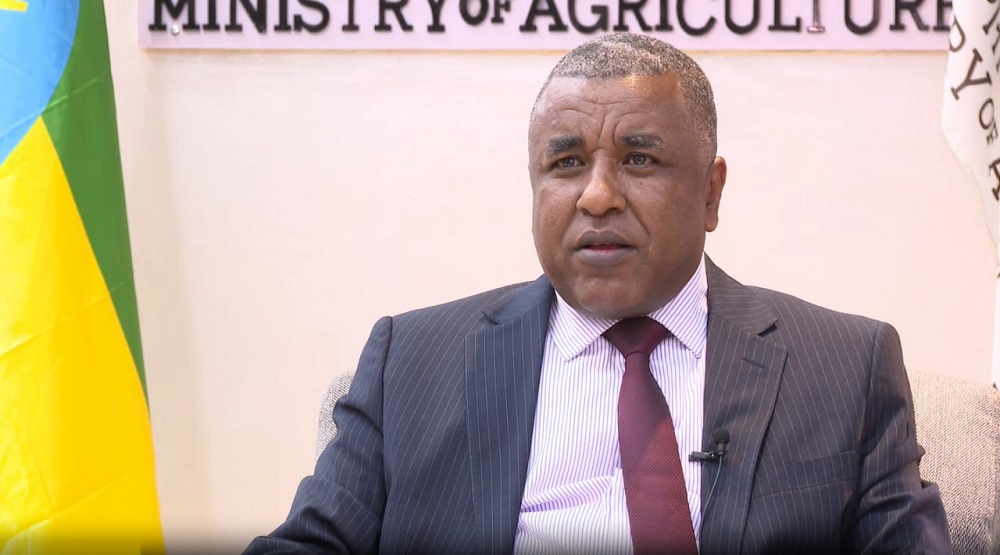Some 17.5 million hectares of land have been cultivated during the Meher season across Ethiopia, Ministry of Agriculture disclosed.
In his presser today, Agriculture Minister Girma Amente said the ministry, which planned to cultivate 17.4 million hectares in the Meher season, has cultivated 17.5 million hectares of land.
Out of the total area of cultivated land, the minister pointed out, 8.6 million hectares of land was cultivated in cluster farming.
Although Ethiopia is making significant strides in cluster farming, Girma, noted that the mechanized farming needs to be increased despite some progresses in recent years.
“Out of the total 17.5 million hectares of land covered with grains, 8.6 million hectares of land was cultivated in cluster, but only half of it was utilized through mechanized farming. The progress in the mechanization shows some progress, but we need to do better by importing mechanization technologies into the sector.”
Although the achievements were commendable, the minister emphasized the importance of bolstering mechanization in cluster farming and in the agriculture sector in general.
Recognizing the potential benefits that mechanization brings, the minister stressed the need to further invest in and promote mechanized farming.
In the past Belg season, the ministry planned to cultivate 2.4 million hectares of land and was able to surpass expectations by cultivating more than 2.7 million hectares.
“The distribution of rainfall patterns during the Belg season was adequate for the Belg season grains producing areas. The plan was to cover 2.4 million hectares of land with grains, but we achieved 2.7 and we obtained 48 million quintals of products thus far harvested from 2.2 million hectares of land.”
These impressive figures only reinforce the urgency to introduce more mechanized techniques to enhance efficiency and productivity in the agriculture sector, it was indicated.
To support this venture, the ministry has undertaken substantial efforts to import 23 million quintals of fertilizer for the upcoming Ethiopian harvesting seasons in 2016/17.
Of which, more than 13 million quintals of fertilizer were already purchased, highlighting the commitment to ensuring the necessary resources are available to support the agricultural production in the country.
In general, the seasonal cultivations, and procurement of agriculture inputs and chemicals in Ethiopia have been successful, he concluded.
Agricultural sector continue to be an essential component of Ethiopian economy with a great deal of contribution in ensuring food security, generating overall economic growth, reducing poverty and in expediting transformation to industrialization.
Source: ENA


